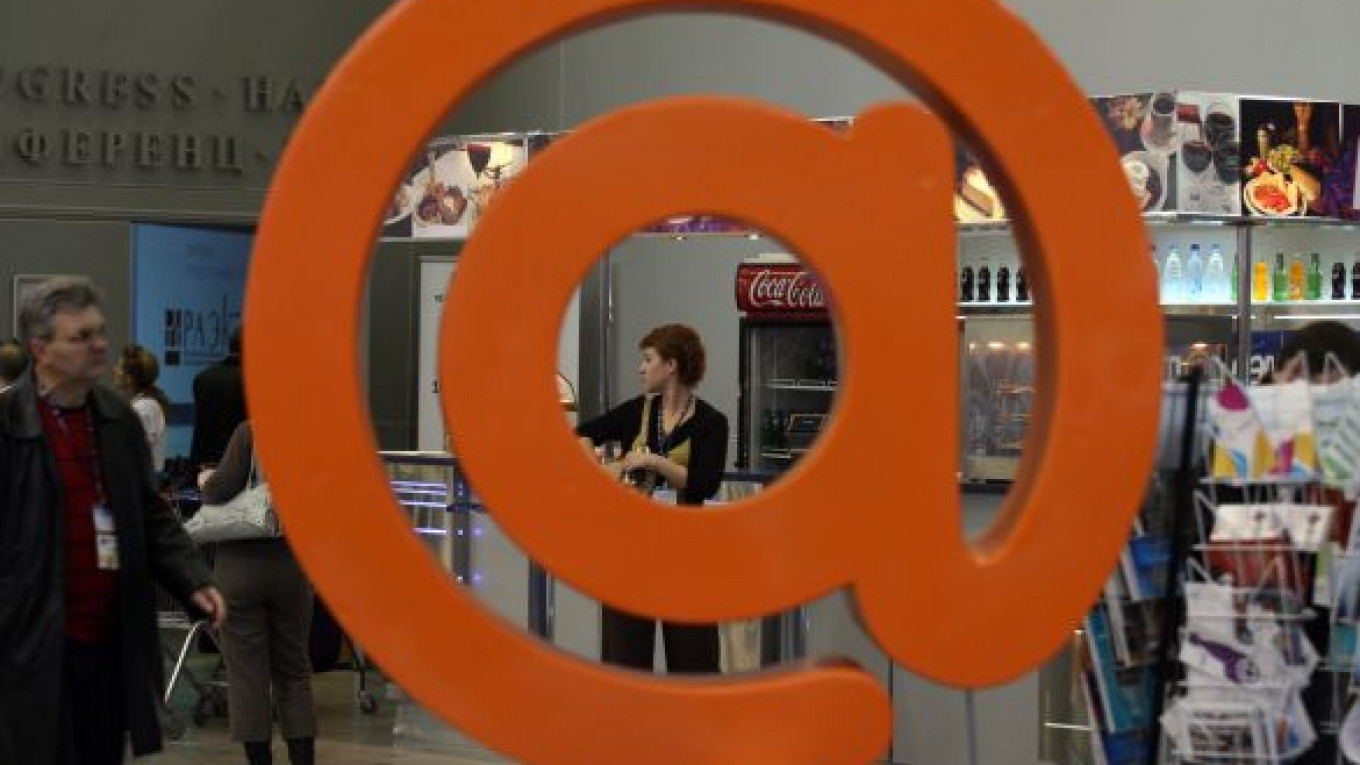Internet businesses are demonstrating strong sales across the board, in areas ranging from website development to online marketing, executives and researchers said at a Wednesday news conference.
But the Internet restrictions that could be imposed under the child protection law taking effect Nov. 1, as well as the government intervention in the Internet advocated by would affect most of those segments and could hinder growth, they warned.
Speaking at the news conference — where the Higher School of Economics and the Russian Electronic Communications Association were releasing a detailed report on the Russian Internet economy — association director Sergei Plugotarenko urged the government to keep the "open" approach to the Internet that it has maintained during "the past few years."
The years since 2006 have seen mushrooming Internet use among Russians: A VTsIOM survey conducted last month suggested that 60 percent of the population now uses the Internet compared with just 24 percent in 2006.
The surge is reflected in the numbers published Wednesday: In 2011, there was more than 554 billion rubles ($17.8 billion) in Internet-related sales, expenditures and payments, the report concluded. Across the 11 business segments studied, there was an average increase of about 30 percent versus 2010.
The largest in volume was online retail, with consumers buying 309 billion rubles' worth of goods online. That figure doesn't even include travel deals.
Consumers also paid and stored 167 billion rubles through online payments systems and at free-standing terminals last year, while advertisers spent 24 billion rubles on contextual ads and 16 billion rubles on media advertising, such as banner ads.
Younger areas of the market include online video ads, on which companies spent 800 million rubles last year, and marketing on social media websites like Odnoklassniki and Vkontakte, which took in 3 billion rubles. Software and data hosting services earned 1.9 billion rubles.
Russian websites, called the Runet, make up the fastest-growing Internet economy in Europe, according to the report.
It also said the volume of online sales and payments could be 30 percent higher this year, or reaching 720 billion rubles.
Increased state restrictions on the Internet would affect most areas of Internet business, Karen Kazaryan, the Russian Electronic Communications Association's chief analyst, said by telephone.
The few exceptions would be areas with corporate and personal products such as website development and online retail.
The communications association — a noncommercial partnership of Internet businesses formed in 2006 — is one of numerous organizations and companies fighting for changes to the child-protection law. Currently, the law allows the government to block not only individual webpages, but whole websites.
The law's reach into Internet business "is why we are trying to work with the government" to clear up its wording, Kazaryan said.
Related articles:
A Message from The Moscow Times:
Dear readers,
We are facing unprecedented challenges. Russia's Prosecutor General's Office has designated The Moscow Times as an "undesirable" organization, criminalizing our work and putting our staff at risk of prosecution. This follows our earlier unjust labeling as a "foreign agent."
These actions are direct attempts to silence independent journalism in Russia. The authorities claim our work "discredits the decisions of the Russian leadership." We see things differently: we strive to provide accurate, unbiased reporting on Russia.
We, the journalists of The Moscow Times, refuse to be silenced. But to continue our work, we need your help.
Your support, no matter how small, makes a world of difference. If you can, please support us monthly starting from just $2. It's quick to set up, and every contribution makes a significant impact.
By supporting The Moscow Times, you're defending open, independent journalism in the face of repression. Thank you for standing with us.
Remind me later.


